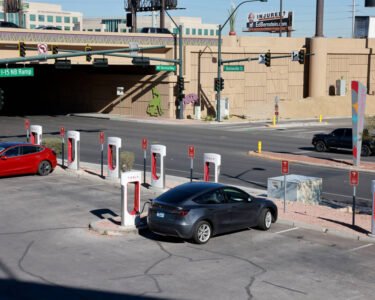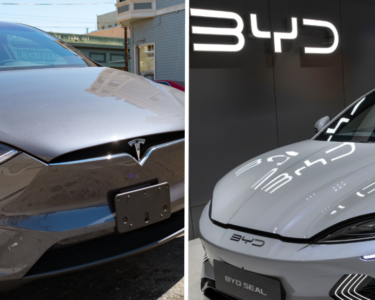Can you please investigate whether Britain’s car insurers are using the cost of living crisis as an excuse to push though unjustified, above-inflation premium increases?
When I was complaining to a colleague, who works in the car insurance business, that insurance on my electric VW Golf had doubled, he sent me some claims data that appears to suggest the increase is completely unjustified.
I’m sure costs have gone up, but I don’t believe that it is anywhere near what is being claimed.
Could it be that insurers are taking us for a ride?
NP, by email
It’s a very interesting, and a highly pertinent, question.
Almost everyone I know has seen their car insurance increase by 40%-50% in recent months.
The industry – led by the Association of British Insurers (ABI) – has been falling over itself to tell us how much its costs have been rising, arguing that the “largest single factor” is repair costs.
It said insurers were reporting a 32% rise between the third quarter of 2022 and the same period of 2023.
But your data suggests they typically rose by about 6% between April and November 2023. This is only for eight months – the annual equivalent is about 9%, less than a third of what the ABI has claimed.
Your figures, which you have been told are from “across the industry”, show that the average insurance repair for a petrol/diesel Ford rose from £2,370 in April 2023 to £2,483 eight months later – that’s a 5% increase.
For VWs, the average repair bill following a crash in a non-EV model rose from £2,595 to £2,753 – a 6% rise.
It’s a similar story for Vauxhalls at 5%, while Toyota repair claims rose almost 6% to an average of £2,319, the data shows.
In the electric car market, which has seen some of the steepest premium increases – often doubling – the data suggests that the average repair to a Tesla rose from an already-hefty £5,021 to £5,342 over the eight months – a 6.4% increase.
Repair claims for the popular MG electric models rose from an average of £2,358 to £2,812 – a 19% increase. This is by far the biggest rise in the table, but nowhere near the 32% the ABI has quoted.
The EV figures appear to be broadly confirmed by the data analytics firm Gecko, which says the average cost to repair a battery electric vehicle stands at £3,012.
Vexed readers need to be aware that these figures only cover bills following an accident or similar.
Cars that are written off – an increasing trend – and claims that arise after a vehicle is stolen, do not feature in this data. Vehicle thefts rose from 104,435 in 2021 to 130,389 in 2022 – a 25% increase – and this trend looks likely to be repeated for 2023 when the latest figures are released in May.
However, bear in mind that there are more than 40m cars on UK roads, so thefts represent a tiny proportion of claims.
I asked the ABI about your figures, and the difference between the increases they show, and the ones it cited.
It tells me: “It is inaccurate to compare these average repair costs from one firm with our data collection. Our data is based on the money our members, who write almost 28m policies, have paid out in claims each quarter.
“The latest collection shows that motor insurers paid out £2.54bn on claims in the third quarter of last year, 21% more than the same time in 2022. In the same period, the amount paid out for vehicle repairs jumped 32%, up to £1.6bn.”
Last summer the chancellor, Jeremy Hunt, asked Britain’s watchdogs to agree an “action plan” amid concerns over “greedflation”: that is companies using rampant inflation as a cover to hike prices and boost profits.
Car insurance costs are rapidly becoming a huge drain on many households’ finances.
Is it time for a Competition & Markets Authority investigation?




